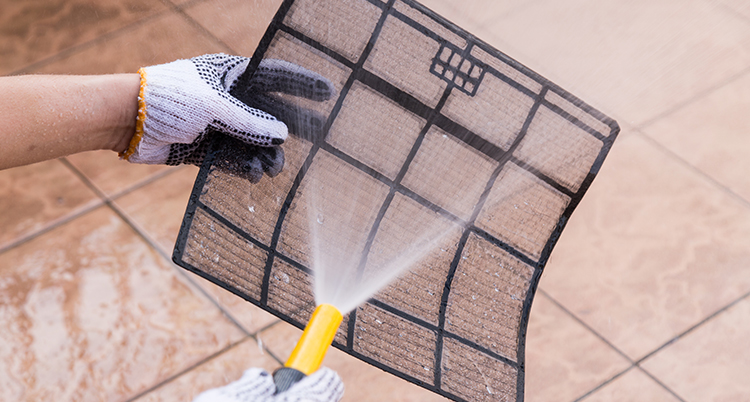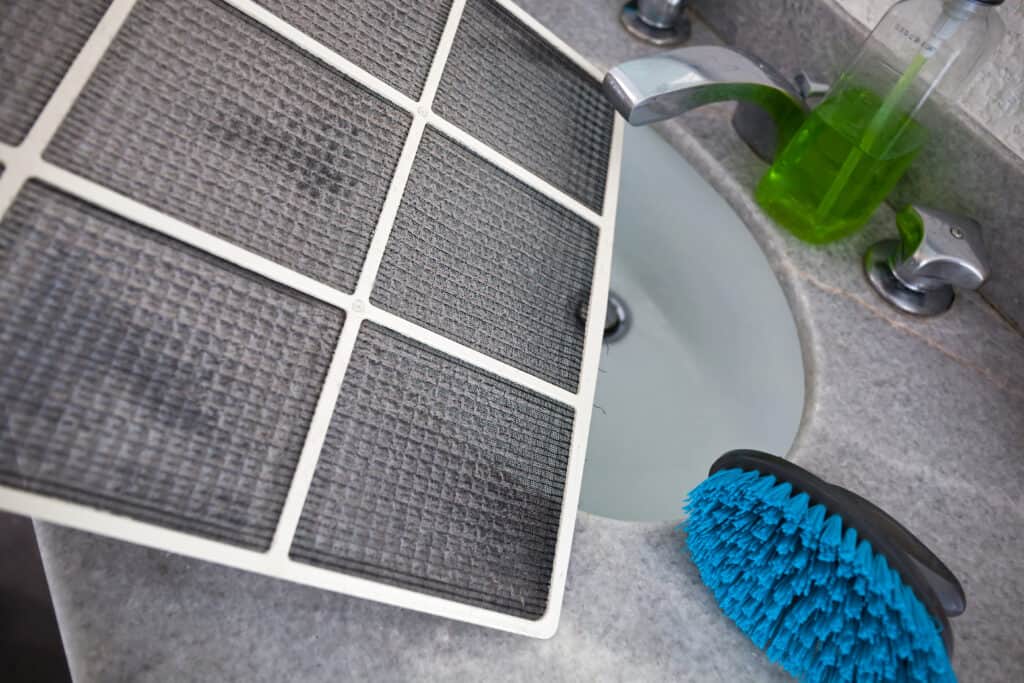Maintaining clean and efficient air quality in your home or office is essential. One of the crucial components for achieving this is the HVAC system. The primary keyword, ‘how to know when to change hvac filter’, is integral in ensuring that your HVAC system runs smoothly.
Changing your HVAC filter regularly can prevent costly repairs and health issues. But how exactly do you know when to change it? This article will guide you through the signs and keep your indoor air quality at its best.

What is an HVAC Filter?
An HVAC (Heating, Ventilation, and Air Conditioning) filter is designed to remove particles from the air before they circulate through your home or office. These particles could include dust, pollen, pet dander, and even bacteria. A clean filter is essential to have clean air.
Why Changing the HVAC Filter is Important
Replacing the filter regularly provides numerous benefits, including improving air quality and maintaining system efficiency. Additionally, it helps in avoiding allergic reactions and respiratory issues, especially for vulnerable individuals.
Improved Air Quality
A clean filter ensures that the air circulating in your environment is free from pollutants. This is particularly important for individuals with allergies or asthma, as contaminants can exacerbate symptoms.
System Efficiency
A dirty filter restricts airflow, forcing the HVAC system to work harder. This consumes more energy and increases utility bills. Conversely, a clean filter promotes efficient airflow and can prolong the life of your HVAC system.
How to Know When to Change HVAC Filter?
Knowing when to change your HVAC filter can sometimes be tricky, but several signs indicate it’s time for a replacement.
Visible Dirt and Debris
One of the most apparent signs is visible dirt and debris on the filter. If the filter looks clogged, it’s definitely time to replace it.
Increased Allergy Symptoms
If you or others in your home experience increased allergy symptoms, it may be due to a dirty HVAC filter. Clean the filter to help alleviate these symptoms.
Higher Energy Bills
If you notice a spike in your utility bills, a dirty filter could be the culprit. A clogged filter makes the HVAC system work harder, consuming more energy.
Regular Time Intervals
Even if you don’t notice any visible signs, it’s a good practice to change the filter every 1-3 months. This ensures optimal performance and air quality.
Types of HVAC Filters
There are several types of HVAC filters, each with unique features and benefits.
Fiberglass Filters
These are the most basic type of filters and are generally inexpensive. However, they need to be replaced more frequently than other types.
Pleated Filters
Pleated filters have a larger surface area to trap more particles. They are excellent at improving air quality and usually last longer than fiberglass filters.
Electrostatic Filters
These filters have self-charging fibers that attract particles, making them highly effective. They can be reusable and washable, adding convenience.
Steps to Change Your HVAC Filter
Changing your HVAC filter is a straightforward process.
Turn Off the System
Before you start, ensure that the HVAC system is turned off. This will prevent unfiltered air from circulating while you replace the filter.
Locate the Filter
The filter is usually located near the return air duct or in the blower compartment. Check the user manual if you’re unsure.
Remove the Old Filter
Once you’ve located the filter, carefully remove the old one and dispose of it properly.
Insert the New Filter
New Filter
Place the new filter in the same position as the old one, ensuring that the airflow direction arrows are aligned correctly.
Turn On the System
Once the new filter is in place, turn the HVAC system back on and enjoy cleaner air.
FAQs
How often should I change my HVAC filter?
It is advisable to change the filter every 1-3 months. Factors like pets, allergies, and air pollution may require more frequent changes.
Can I clean and reuse my HVAC filter?
Reusable filters like electrostatic filters can be cleaned and reused. However, most disposable filters should be replaced rather than cleaned.
What are the signs that my HVAC filter needs replacing?
Visible dirt, increased allergy symptoms, and higher energy bills are common signs that indicate the need for a filter replacement.
For more detailed guidelines, you can refer to HVAC filter replacement.
For additional internal information, explore our guides on commercial duct cleaning and cleaning dryer vents.